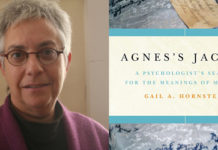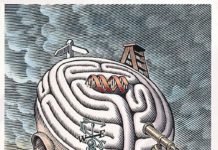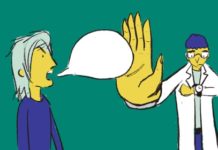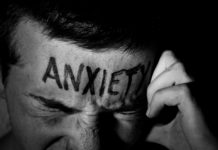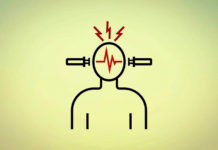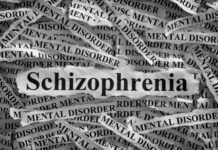“Page Not Found” Ends Up “Telling All” About Psychiatry
Psychiatric censorship tries to hide the damaging effects of psychiatric drugs from everyone, including psychiatrists who happen to go looking for useful information. Just for fun, let's take a look at how far psychiatry will go when a bit of truth escapes from one of its own publications and must be deleted in clumsy desperation.
Peer-Support Groups Were Right, Guidelines Were Wrong: Dr. Mark Horowitz on Tapering Off Antidepressants
In an interview with MIA, Dr. Horowitz discusses his recent article on why tapering off antidepressants can take months or even years.
Increasing Prevalence of Mood Disorders Among Teens and Young Adults
Depression, serious psychological distress, and suicide attempts have risen substantially since the early 2000s among young adults – what’s changed?
It is Time to Abandon the Candidate-Gene Approach to Depression
The candidate-gene approach to depression goes unsupported and is likely based on bad science, new research finds.
Recovery Porn: Tell Me Your Story, I’ll Tell You Your Value
There is little denying the power of story… until our own stories get taken from us, positioned against us, and used to determine our value as some sort of human commodity. We deserve to have our stories heard and to hear the stories of others, but on our own terms, without being fetishized or controlled, and without competition for paltry awards and recognition.
Together for Sustainable Change: The Launch of Mad in Sweden
It is with great pleasure that I announce that Mad in Sweden launches today. The number of people receiving a psychiatric diagnosis in Sweden has increased dramatically in recent years, and the need for alternative perspectives to today’s biomedical and pharmacologically oriented paradigm of mental health has never been greater.
Real, Not Sham, Mental Health Coverage
Ruling on a class action lawsuit brought against the nation’s largest health insurer, Judge Spero concluded that it had adopted treatment guidelines focused on saving costs through limiting coverage to the management of acute mental health episodes. How much psychotherapy does a person need to achieve meaningful and lasting change in their emotional outlook?
Saving Psychotherapy
Psychotherapy could, and really ought to, promote itself as the best investigative tool around for understanding emotional health and problems in living. That would change its footing, putting it on much more solid ground. I’m calling this redefined version of psychotherapy multi-lens therapy, to put the emphasis on where it ought to have been put all along: investigating.
The Role of Context, Language, and Meaning in Hearing Voices
Sociocultural context, language, and sense-making process are among concepts that can help hearers and providers better understand the phenomenon of hearing voices
First-Person Accounts of Madness and Global Mental Health: An Interview with Dr. Gail Hornstein
Dr. Gail Hornstein, author of Agnes’s Jacket: A Psychologist’s Search for the Meanings of Madness, discusses the importance of personal narratives and service-user activism in the context of the global mental health movement.
I Get to Decide What’s Helpful for Me
If you’re in a “helping” profession, remember this: it is really arrogant to assume that you know enough to be able to decide what’s helpful for other people. The best thing you can do to help is advocate for people being treated well — which starts with asking them what they need — and say out loud that the harmful ways they’re being treated aren’t okay.
Mental Health Concerns Not “Brain Disorders,” Say Researchers
The latest issue of the journal Behavioral and Brain Sciences features several prominent researchers arguing that mental health concerns are not “brain disorders.”
How Do Clients Solicit Medication Changes With Psychiatrists?
Researchers examine psychiatrist-client interactions and find that clients are often left with few opportunities to make explicit requests to change their medication regimen.
Very Slow Tapering Best For Antidepressant Withdrawal
A new article in Lancet Psychiatry finds that slower tapering of SSRIs is better for preventing antidepressant withdrawal effects.
Dangers of Antidepressants: My Personal Struggle with Conventional Medicine
I believed my doctor knew best about my health. I trusted that he knew it would be safe to switch me from an anti-anxiety drug that I had been taking for several years and put me on this new drug. It was only during the horror I went through afterward that I found out everything about this evil drug all on my own. To this day, I still get brain zaps in my sleep.
Student Counseling Services: Do They Really Help the ‘Mentally Ill’?
I used to think that the counseling center would help me to resolve my inner conflicts. That visiting the center would do some good for me. I have since realized that most mainstream “mental health” is more damaging than helpful. These days if student counselors see any problem with a student visiting the center, they send him or her to see a psychiatrist.
Stigmatizing Effects of the Psychosis-Risk Label
Study examines the effects on participants of being told they are at risk of developing psychosis.
Kick Big Pharma Out of the Classroom
School-based strategies such as the “talk to your doctor” campaign about any childhood problem have been extremely effective in helping the pharmaceutical industry to marginalize traditional child-rearing practices and replace them with advice from mental health “experts” and the use of dangerous drugs. These campaigns are reminiscent of now-illegal vintage tobacco ads in which doctors endorsed cigarette smoking.
Will the European Elections Be a Chance for Mental Health?
European citizens from 27 different countries will soon go to the polls to elect their representatives in the European Parliament for the next five years. As an advocacy organisation, we see those elections as an opportunity to call on current and future European leaders and policymakers to bring mental health to the heart of European policies.
Is Anxiety to Blame for Missed School?
A new systematic review illustrates features of the relationship between anxiety and school attendance patterns.
Psychology Needs New Concepts and Healing Models for Racial Trauma
Contemporary empirical research explores new ways to conceptualize and heal racial trauma through anticolonial and sociohistorical lenses.
“Let’s Not Go Overboard About ECT”
In an internet email discussion among a large group of supposedly enlightened mental health professionals, few came forward to outright condemn or ban ECT. One participant responded to my comments with, "It worries me how this debate gets so polarized." This refusal to say or to accept something polarizing is a hallmark of most so-called reformers in the field of mental health.
My Mental Health Awakening
Although it’s taken me a while to acknowledge my right to be in this world, I know that I am not “mentally ill,” but rather have a dynamic spiritual and emotional sensitivity to this world. I am here for a reason, and having to go into the depths of a very dark cave in order to see the light is how I was able to grow and discover that I don't have to take medications for the rest of my life.
How “Mental Health Awareness” Exploits Schoolchildren
Imagine being a parent at a meeting with educators to discuss Johnny's academics or behavior. Suddenly, your child’s teacher is telling you that he needs to see a doctor for an assessment of a suspected “mental disorder,” which usually leads to a prescription for medication. Warned of “the risks against failing to intervene,” you will likely acquiesce.
Researchers Make the Case to Rename Schizophrenia
The authors outline reasons for renaming schizophrenia and the way a change can reform practice.










